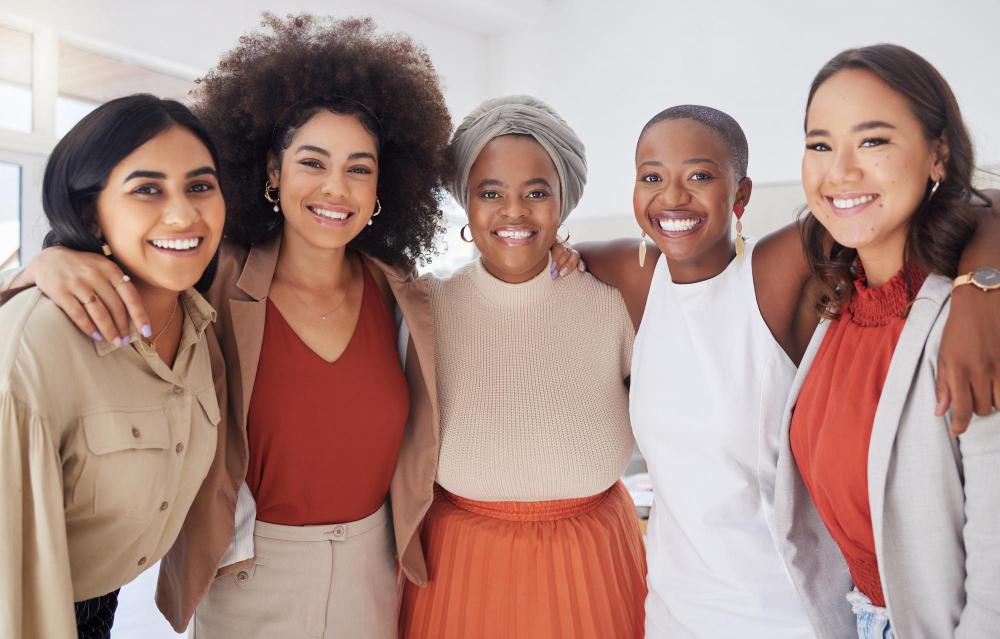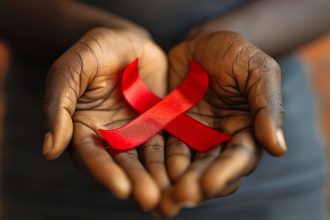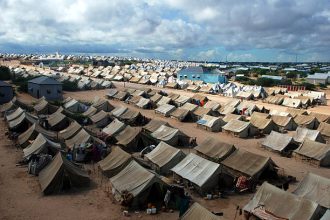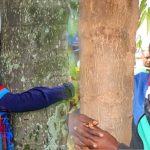Positive Masculinity empowers men and boys to discuss the risks of unprotected sex, such as HIV, and gender-based violence, as well as promoting emotional intelligence, empathy and respect for gender equality.
The concept of ‘Positive Masculinity’ is on the rise in Africa, driving media debates, community dialogues and policy. In countries like Eswatini, young men like Nkosikhona are asking, “Where do you learn to be a man?”
Recent analysis, from the Joint UN Regional Programme 2gether 4 SRHR, found the meaning of masculinity dominates social media conversations across Eastern and Southern Africa, with young men increasingly empowered to discuss the dangers of unprotected sex or violence.
African leaders, led by South Africa’s President Cyril Ramaphosa, agreed on a position on positive masculinity, bucking many assumptions about what makes an African man today. The ‘Positive masculinity’ movement sheds harmful stereotypes and promotes emotional intelligence, empathy, and respect for gender equality. Its rise is saving lives in five unique ways:
People listen to those in charge
Uganda was the first country in the region to develop a ‘male engagement strategy’, with UNAIDS support. Lesotho, Malawi, Zimbabwe and Kenya followed suit. Successful health campaigns are championed by esteemed men, such as Ugandan Reverend Canon Gideon Byamugisha.
He had just been ordained when he was widowed, left to raise a baby, and tested positive for HIV. Rather than hide his diagnosis, he co-founded Inerela+, a network of HIV positive faith leaders who use their respected position in society to help end stigma and promote treatment.
If the mountain won’t come to Muhammad, then Muhammad must go to the mountain
A community initiative in Eswatini meets men and boys in the places men traditionally congregate, such as gyms. At Kwakha Indvodza, supported by UNAIDS and UNFPA, men and boys talk about taboo issues while learning new skills such as personal training or carpentry. About 96 per cent of young men are now earning a good monthly wage from the skills gained through the workshops, and 65 per cent consulted health services, including for HIV testing, condom usage and referrals for sexually transmitted infections.
Young people listen to their peers
Young people, especially young mothers, share that older health workers are often judgmental, discriminatory, and that services are not confidential. But when health information is shared by peers, the impact is stronger, not only for mums and babies but for male partners too.
Peer networks offering support, home visits and safe spaces to discuss health and support in Lesotho led to improvements not only in increasing testing and treatment and reducing transmission rates of HIV, and in reducing postnatal depression by 30 per cent, but also in reducing intimate partner violence by 44 per cent.
These programmes are now being rolled out nationally in a number of countries in the region, including Zimbabwe and South Africa.
Risk of sexual violence always increases during conflicts and humanitarian emergencies
The majority of those displaced in emergencies are women and girls, increasing their risk of sexual violence. Girls are forced into child marriage or transactional sex, both last resorts when food is scarce.
UNICEF found that child marriage and FGM increased due to drought in the Horn of Africa, affecting girls as young as 12.
So humanitarian response teams have developed a toolkit of teaching materials, focusing on self-esteem for adolescent girls and positive masculinity for boys. First piloted in Mozambique, the rates of child marriage were reduced, and the programme was then expanded to Somalia and Ethiopia.
Rites of passage should do no harm.
Rites of passage preserve traditional cultures, but some coming-of-age initiation ceremonies can reinforce the subservience of women to men, minimising consent and increasing HIV risk. But UNFPA’s analysis found that working with elders and involving young people in taboo discussions reduces harm.
Across Africa, men and boys are debating what it means to be a man – and an ally, of sexual reproductive health and rights. These carefully curated conversations result from a new wave of academic research into the ways social norms drive attitudes, behaviour and subsequently health. 2gether 4 SRHR, in partnership with the Universities of Oxford and Cape Town, recently published research showing which ‘meta norms’ lead to early unintended pregnancy, HIV and violence.
The research found privacy is woefully lacking in health clinics, preventing young people from seeking healthcare for taboo issues such as pregnancy and HIV. This review of 40 interventions across 12 countries outlines the most effective ways to strengthen positive social norms to improve health outcomes for adolescents.
Engaging influential men in celebrating positive masculinity is fast becoming a priority for governments aiming to nudge behaviours. By prompting reflections about power dynamics, taboos are being broken down – by caregivers, healthcare workers, teachers, community leaders and youth-led networks.
What this means in practice is a safe space for young men like Nkosikhona to discuss condoms and consent with his girlfriend, protecting them both from HIV, teen pregnancy and financial hardships. It’s a win-win approach which will yield lasting change.
The writers are UN Regional Gender Advisers for Eastern and Southern Africa: Gaia Chiti Strigelli (UNICEF), Tapiwa Uchizi Nyasulu, (UNFPA) and Cynthia Amanda Lungu, UNAIDS.
























